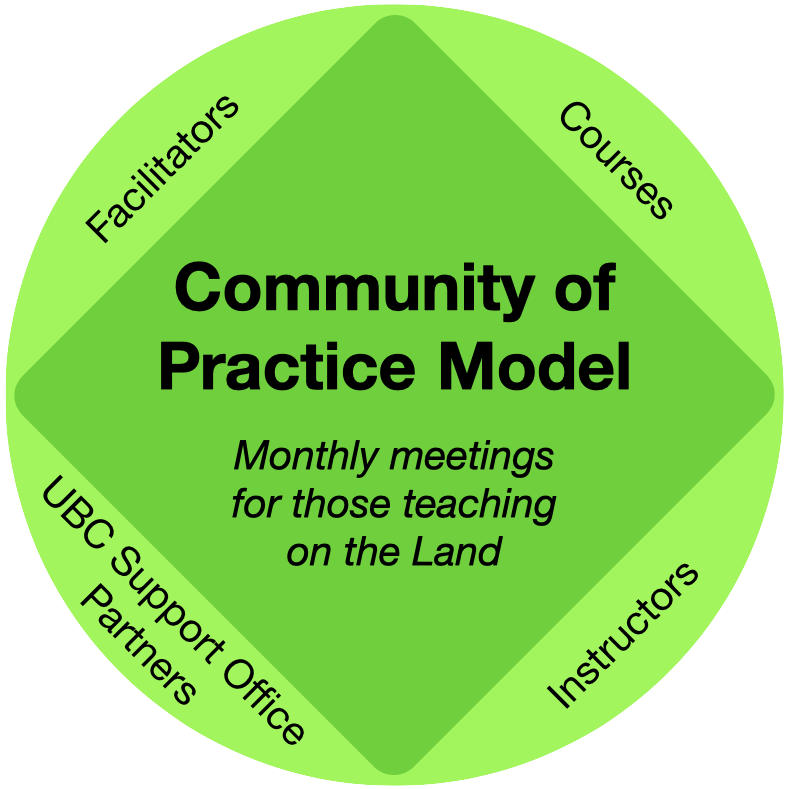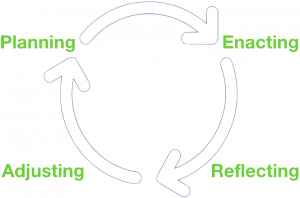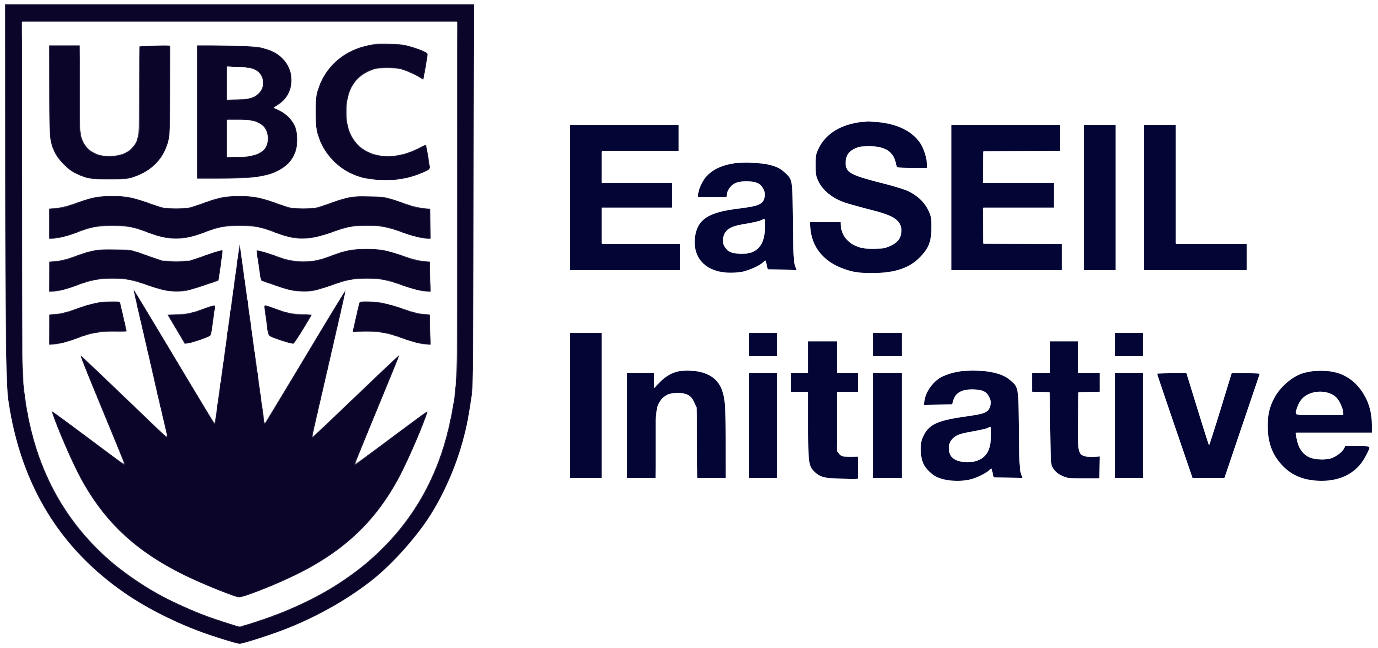Our Community of Practice (CoP) Model
EaSEIL CoP (Community of Practice), is a formalized multidisciplinary ‘space’ for ongoing individual and collaborative reflection, learning, and production among instructors, staff, students and community members.

Our CoP seeks to foster cultural and curriculum change to reimagine, develop and transform geoscience field-based learning experiences.
In this space, all members share their expertise and knowledge with one another (e.g., pedagogical and cultural awareness knowledge, contextual and disciplinary expertise) to co-construct meaning and co-develop contextualized resources, tools, guidelines, and curricula.
Within the CoP, instructors take centre stage as knowers and learners who bring ample experience, diverse voices and journeys of experience teaching and learning in field-based settings. Instructors and UBC support staff members meet regularly (2-3 time per term on average) in goal-oriented individual/collective cycles of action and reflection about field-based teaching and learning.
How EaSEIL CoP Works in Practice
A core element of our model is instructors’ engagement in individual and collaborative reflective activities about field-based teaching and learning.

Each instructor comes to EaSEIL, and to the CoP, with specific interests, goals and plans to learn and (re)imagine their own field-based learning experiences for students (e.g., making them more accessible and inclusive; incorporating Indigenous perspectives, knowledges, worldviews).
These individual projects are informed by the CoP’s collective work and vice-versa. Faculty developers design and facilitate EaSEIL CoP activities (e.g., monthly meetings, opportunities for reflection, events) in response to instructors’ and contextual needs and interests.
Facilitators partner with students as advisors and in resource co-development projects, as well as with institutional support offices (as guest speakers, CoP curriculum advising, resources).
In addition, facilitators support the collective production of teaching and learning materials as informed by EaSEIL CoP discussions, student perspectives, relevant literature and teaching and learning materials shared by instructors.
Through this iterative process of the CoP, new knowledge is mobilized into practice which can transform the teaching and learning experience of those involved.
EaSEIL CoP meetings last 1.5 hours and are structured using a Thirds Model Approach. As preferred by the CoP members, most of that time is devoted to shared meaning making (knowledge and experience exchange and collaborative work), but we also create opportunities for individual work.

